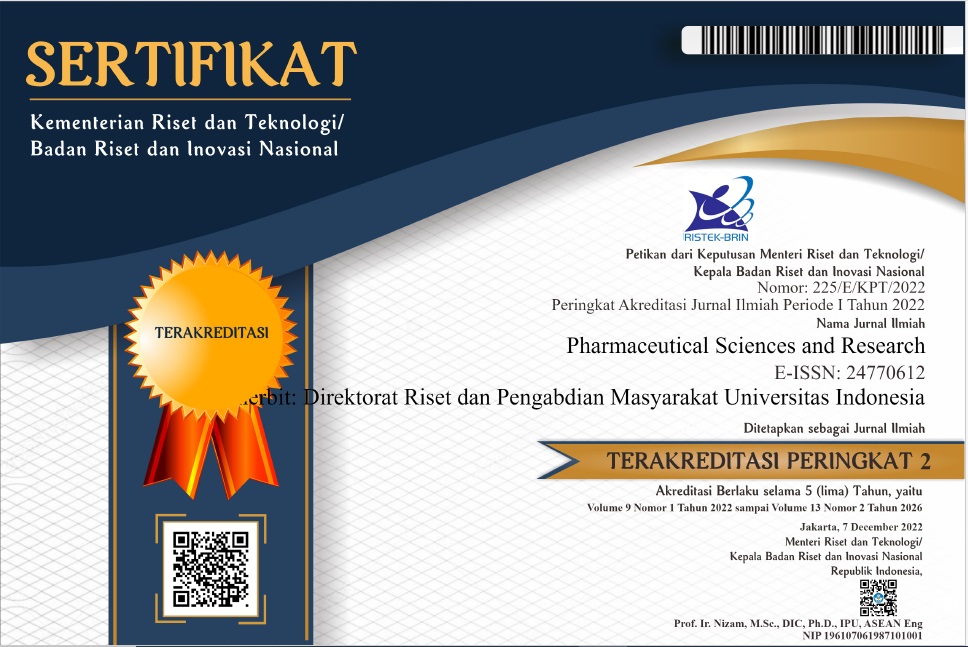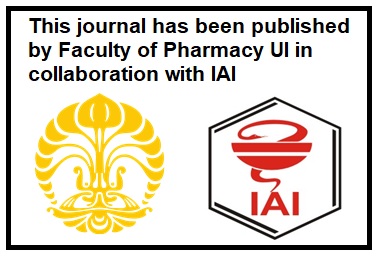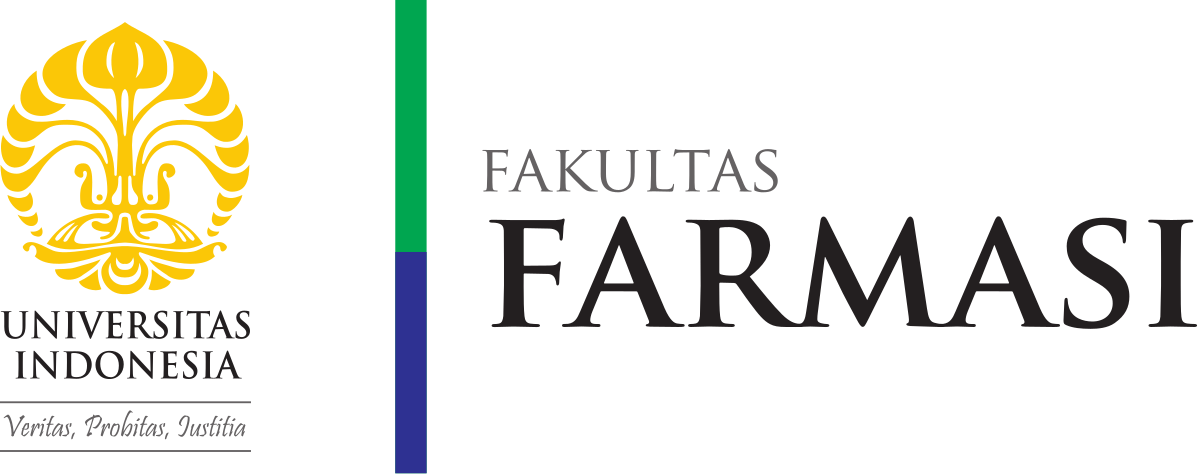Abstract
The pandemic of novel coronavirus disease (COVID-19) has become a global disaster that occurred between the end of 2019 and 2023. It caused immeasurable damage to almost all aspects of human life. The disease has opened a lot of new perspectives on Severe Acute Respiratory Syndrome Coronavirus 2 (SARS-CoV-2) origins and pathogenesis, the nature of the virus, the potential for new treatments, and new policies to overcome this pandemic. This review aims to know the potential of plants that are beneficial to combat the diseases, including immunomodulators in the management of COVID-19. Studies reporting COVID-19 with the keywords SARS-CoV-2, COVID-19, pathogenesis, clinical manifestations, medicinal plants, and their benefits were included. We also discussed the molecular pathways of the bioactive compound that may interact with the pathogenesis of COVID-19. Clinical management for COVID-19 is still being refined from time to time because many aspects are not yet fully understood and need further studies. Therefore, effective, non-invasive, and affordable treatment must be sought immediately to meet this very urgent need. The commotion situation of the COVID-19 pandemic has encouraged various efforts to develop new drugs, including alternative therapies from potential medicinal plants. The pharmacotherapeutic activity of Indonesia-based medicinal plants for COVID-19 has evolved, including Phyllanthus niruri, Andrographis paniculata, Anacardium occidentale, Zingiber officinale, and Glycyrrhiza glabra. The potential benefits of that combination of herbal medicinal plants also need to be explored for better contribution in managing COVID-19, particularly in Indonesia.
References
Attah, A. F., Fagbemi, A. A., Olubiyi, O., Dada-Adegbola, H., Oluwadotun, A., Elujoba, A., & Babalola, C. P. (2021). Therapeutic potentials of antiviral plants used in traditional african medicine with COVID-19 in focus: A nigerian perspective. In Frontiers in Pharmacology (Vol. 12). Frontiers Media S.A. https://doi.org/10.3389/fphar.2021.596855
Ballester, P., Cerdá, B., Arcusa, R., García-Muñoz, A. M., Marhuenda, J., & Zafrilla, P. (2023). Antioxidant activity in extracts from zingiberaceae family: Cardamom, turmeric, and ginger. In Molecules (Vol. 28, Issue 10). MDPI. https://doi.org/10.3390/molecules28104024
Baskar, M., Kiranmathyi, B., Sivaraj, C., Saraswathi, K., & Arumugam, P. (2019). Antioxidant activities and gcms analysis of Anacardium occidentale L. fruits. Journal of Drug Delivery and Therapeutics, 9(3), 348–355. https://doi.org/10.22270/jddt.v9i3.2677
BPOM. (2020). Cek Produk BPOM.
Chen, K., Yang, R., Shen, F.-Q., & Zhu, H.-L. (2020). Advances in pharmacological activities and mechanisms of glycyrrhizic acid. Current Medicinal Chemistry, 27(36), 6219–6243.
Choudhry, N., Zhao, X., Xu, D., Zanin, M., Chen, W., Yang, Z., & Chen, J. (2020). Chinese therapeutic strategy for fighting COVID-19 and potential small-molecule inhibitors against Severe Acute Respiratory Syndrome Coronavirus 2 (SARS-CoV-2). In Journal of Medicinal Chemistry (Vol. 63, Issue 22, pp. 13205–13227). American Chemical Society. https://doi.org/10.1021/acs.jmedchem.0c00626
da Silva, D. P. B., Florentino, I. F., da Silva Moreira, L. K., Brito, A. F., Carvalho, V. V., Rodrigues, M. F., Vasconcelos, G. A., Vaz, B. G., Pereira-Junior, M. A., Fernandes, K. F., & Costa, E. A. (2018). Chemical characterization and pharmacological assessment of polysaccharide free, standardized cashew gum extract (Anacardium occidentale L.). Journal of Ethnopharmacology, 213, 395–402. https://doi.org/10.1016/j.jep.2017.11.021
Davis, J. T., Chinazzi, M., Perra, N., Mu, K., Pastore y Piontti, A., Ajelli, M., Dean, N. E., Gioannini, C., Litvinova, M., Merler, S., Rossi, L., Sun, K., Xiong, X., Longini, I. M., Halloran, M. E., Viboud, C., & Vespignani, A. (2021). Cryptic transmission of SARS-CoV-2 and the first COVID-19 wave. Nature, 600(7887), 127–132. https://doi.org/10.1038/s41586-021-04130-w
Elfahmi., Woerdenbag, H. J., Kayser, O. (2014). Jamu: Indonesian traditional herbal medicine towards rational phytopharmacological use. Journal of Herbal Medicine, 4(2), 51-73.
Fang, S. H., Rao, Y. K., & Tzeng, Y. M. (2008). Anti-oxidant and inflammatory mediator’s growth inhibitory effects of compounds isolated from Phyllanthus urinaria. Journal of Ethnopharmacology, 116(2), 333–340. https://doi.org/10.1016/j.jep.2007.11.040
Guo, Q., Zhang, Q. Q., Chen, J. Q., Zhang, W., Qiu, H. C., Zhang, Z. J., Liu, B. M., & Xu, F. G. (2017). Liver metabolomics study reveals protective function of Phyllanthus urinaria against CCl4-induced liver injury. Chinese Journal of Natural Medicines, 15(7), 525–533. https://doi.org/10.1016/S1875-5364(17)30078-X
Gupta, M. K., Vemula, S., Donde, R., Gouda, G., Behera, L., & Vadde, R. (2021). In-silico approaches to detect inhibitors of the human severe acute respiratory syndrome coronavirus envelope protein ion channel. Journal of Biomolecular Structure and Dynamics, 39(7), 2617–2627. https://doi.org/10.1080/07391102.2020.1751300
Hidayat, R., & Patricia Wulandari. (2022). Potential of meniran (Phyllanthus niruri L.) and sambiloto (Andrographis paniculata) as a supplement to the management of Coronavirus Disease 2019 (COVID-19). Eureka Herba Indonesia, 3(2), 144–148. https://doi.org/10.37275/ehi.v3i2.58
Hoffmann, M., Kleine-Weber, H., Schroeder, S., Krüger, N., Herrler, T., Erichsen, S., Schiergens, T. S., Herrler, G., Wu, N. H., Nitsche, A., Müller, M. A., Drosten, C., & Pöhlmann, S. (2020). SARS-CoV-2 cell entry depends on ACE2 and TMPRSS2 and is blocked by a clinically proven protease inhibitor. Cell, 181(2), 271-280.e8. https://doi.org/10.1016/j.cell.2020.02.052
Hossain, M. S., Urbi, Z., Sule, A., & Rahman, K. M. H. (2014). Andrographis paniculata (Burm. f.) Wall. ex Nees: A review of ethnobotany, phytochemistry, and pharmacology. In Scientific World Journal (Vol. 2014). Hindawi Publishing Corporation. https://doi.org/10.1155/2014/274905
Hu, B., Guo, H., Zhou, P., & Shi, Z. L. (2021). Characteristics of SARS-CoV-2 and COVID-19. In Nature Reviews Microbiology (Vol. 19, Issue 3, pp. 141–154). Nature Research. https://doi.org/10.1038/s41579-020-00459-7
Intharuksa, A., Arunotayanun, W., Yooin, W., & Sirisa-ard, P. (2022). A comprehensive review of Andrographis paniculata (Burm. f.) nees and its constituents as potential lead compounds for COVID-19 drug discovery. In Molecules (Vol. 27, Issue 14). MDPI. https://doi.org/10.3390/molecules27144479
Jiang, M., Zhao, S., Yang, S., Lin, X., He, X., Wei, X., Song, Q., Li, R., Fu, C., Zhang, J., & Zhang, Z. (2020). An “essential herbal medicine”—licorice: A review of phytochemicals and its effects in combination preparations. In Journal of Ethnopharmacology (Vol. 249). Elsevier Ireland Ltd. https://doi.org/10.1016/j.jep.2019.112439
Kumar, M., & Al Khodor, S. (2020). Pathophysiology and treatment strategies for COVID-19. In Journal of Translational Medicine (Vol. 18, Issue 1). BioMed Central Ltd. https://doi.org/10.1186/s12967-020-02520-8
Kumar, S., Tao, Q., Weaver, S., Sanderford, M., Caraballo-Ortiz, M. A., Sharma, S., Pond, S. L. K., & Miura, S. (2021). An evolutionary portrait of the progenitor SARS-CoV-2 and its dominant offshoots in COVID-19 pandemic.
Mao, Q. Q., Xu, X. Y., Cao, S. Y., Gan, R. Y., Corke, H., Beta, T., & Li, H. Bin. (2019). Bioactive compounds and bioactivities of ginger (Zingiber officinale Roscoe). In Foods (Vol. 8, Issue 6). MDPI. https://doi.org/10.3390/foods8060185
Okhuarobo, A., Ehizogie Falodun, J., Erharuyi, O., Imieje, V., Falodun, A., & Langer, P. (2014). Harnessing the medicinal properties of Andrographis paniculata for diseases and beyond: A review of its phytochemistry and pharmacology. Asian Pacific Journal of Tropical Disease, 4(3), 213–222. https://doi.org/10.1016/S2222-1808(14)60509-0
Oladele, J. O., Ajayi, E. I., Oyeleke, O. M., Oladele, O. T., Olowookere, B. D., Adeniyi, B. M., Oyewole, O. I., & Oladiji, A. T. (2020). A systematic review on COVID-19 pandemic with special emphasis on curative potentials of Nigeria based medicinal plants. In Heliyon (Vol. 6, Issue 9). Elsevier Ltd. https://doi.org/10.1016/j.heliyon.2020.e04897
Rahayu, Y. Y. S., Araki, T., Rosleine, D. (2020). Factors affecting the use of herbal medicines in the universal health coverage system in Indonesia. Journal of Ethnopharmacology, 260, 1-10.
Rosenthal, S. H., Gerasimova, A., Ruiz-Vega, R., Livingston, K., Kagan, R. M., Liu, Y., Anderson, B., Owen, R., Bernstein, L., Smolgovsky, A., Xu, D., Chen, R., Grupe, A., Tanpaiboon, P., & Lacbawan, F. (2022). Development and validation of a high throughput SARS-CoV-2 whole genome sequencing workflow in a clinical laboratory. Scientific Reports, 12(1). https://doi.org/10.1038/s41598-022-06091-0
Shah, T., Xia, K. Y., Shah, Z., & Baloch, Z. (2022). Therapeutic mechanisms and impact of traditional Chinese medicine on COVID-19 and other influenza diseases. In Pharmacological Research - Modern Chinese Medicine (Vol. 2). Elsevier B.V. https://doi.org/10.1016/j.prmcm.2021.100029
Souza, N. C., De Oliveira, J. M., Da Silva Morrone, M., Albanus, R. D. O., Amarante, M. D. S. M., Da Silva Camillo, C., Langassner, S. M. Z., Gelain, D. P., Moreira, J. C. F., Dalmolin, R. J. S., & De Bittencourt Pasquali, M. A. (2017). Antioxidant and anti-inflammatory properties of anacardium occidentale leaf extract. Evidence-Based Complementary and Alternative Medicine, 2017. https://doi.org/10.1155/2017/2787308
Tungadi, R., Tuloli, T. S., Abdulkadir, W., Thomas, N., Madania, Hasan, A. M., & Sapiun, Z. (2020). COVID-19: Clinical characteristics and molecular levels of candidate compounds of prospective herbal and modern drugs in Indonesia. In Pharmaceutical Sciences (Vol. 26, pp. S12–S23). Tabriz University of Medical Sciences. https://doi.org/10.34172/PS.2020.50
Upadhyay, R., & Tiwari, K. nath. (2023). The antiviral potential of Phyllanthus species: A systematic review. Archives of Virology , 168(177).
Utami, N., Bidara, I. S., Royani, J. I., Reninta, R., Dwimahyani, I., & Mulyono, D. (2022). Increasing secondary metabolites production of Phyllanthus sp to support development of herbal medicine industry. IOP Conference Series: Earth and Environmental Science, 1114(1), 012082. https://doi.org/10.1088/1755-1315/1114/1/012082
Vincent, J.-L., & Taccone, F. S. (2020). Understanding pathways to death in patients with COVID-19. https://doi.org/10.1016/j
Wan, Y., Shang, J., Graham, R., Baric, R. S., & Li, F. (2020). Receptor recognition by the novel coronavirus from wuhan: An analysis based on decade-long structural studies of SARS Coronavirus. Journal of Virology, 94(7). https://doi.org/10.1128/jvi.00127-20
Wang, D., Hu, B., Hu, C., Zhu, F., Liu, X., Zhang, J., & Wang, B. (2020). Clinical characteristics of 138 hospitalized patients with 2019 novel coronavirus–infected pneumonia in wuhan, China. JAMA, 323(11):1061-1069. doi:10.1001/jama.2020.1585
WHO. (2023). COVID-19 Weekly Epidemiological Update.
Wu, C., Liu, Y., Yang, Y., Zhang, P., Zhong, W., Wang, Y., Wang, Q., Xu, Y., Li, M., Li, X., Zheng, M., Chen, L., & Li, H. (2020). Analysis of therapeutic targets for SARS-CoV-2 and discovery of potential drugs by computational methods. Acta Pharmaceutica Sinica B, 10(5), 766–788. https://doi.org/10.1016/j.apsb.2020.02.008
Xiong, Y., Li, N. X., Duan, N., Liu, B., Zhu, H., Zhang, C., Li, L., Lu, C., & Huang, L. (2020). Traditional chinese medicine in treating influenza: From basic science to clinical applications. In Frontiers in Pharmacology (Vol. 11). Frontiers Media S.A. https://doi.org/10.3389/fphar.2020.575803
Zhang, S., Kou, X., Zhao, H., Mak, K. K., Balijepalli, M. K., & Pichika, M. R. (2022). Zingiber officinale var. rubrum: Red ginger’s medicinal uses. In Molecules (Vol. 27, Issue 3). MDPI. https://doi.org/10.3390/molecules27030775
Recommended Citation
Rozaliyani, Anna; Pratama, Satria; Setianingrum, Findra; Yunita, Fenny; and Rumende, C. Martin
(2023)
"The Potential of Herbal Combinations as Adjunctive Therapy for Standard Care of COVID-19 Patients: A Lesson Learned from Indonesia,"
Pharmaceutical Sciences and Research: Vol. 10:
No.
3, Article 7.
DOI: 10.7454/psr.v10i3.1349
Available at:
https://scholarhub.ui.ac.id/psr/vol10/iss3/7
Included in
Natural Products Chemistry and Pharmacognosy Commons, Other Pharmacy and Pharmaceutical Sciences Commons, Pharmaceutics and Drug Design Commons








